AMMAN — Reef
Fakhouri and Dina Bataineh had a meeting of the minds when they launched
Taghmees (“to dip”) Social Kitchen to encourage themselves and surrounding
communities to break down and rebuild their relationships with each other,
their environment, and food, in an effort to seek and create hope.
اضافة اعلان
While hosting
Orange Tejwal — a trip roaming around orange groves near Tal Al-Arbaeen, in
North Shouneh — on January 22, Fakhouri told the 14 people on the bus taking us
there that the purpose of the trip was to create “a learning mixture of
experiences to grow our personal stories and explore our sources of knowledge
and living”.
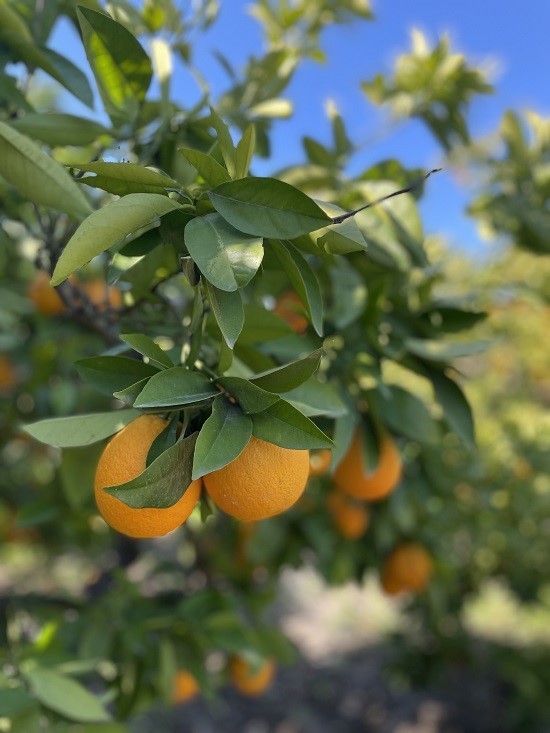 (Photo: Juliana Kaldany)
(Photo: Juliana Kaldany)
The two-hour ride
from Amman to the first farm was marked by apprehension, as is the start of
most trips with strangers, but the awkwardness was broken with the offering of
dates and other foodstuffs by fellow passengers. The crowd was a mixture of
long-time Taghmees members and newcomers.
Soon after we
arrived, we were warmly welcomed by farmer Abu Tamer, who has been overseeing
this orange grove at Amr Al-Zoubi’s farm for close to 10 years. Tangy scents
and snippets of orange met us at the entrance, only to intensify as we
traversed some of the 45-dunum (4.5-hectare) farm planted with a range of citrus trees.
Abu Tamer’s farm
is located in Waqqas, in the northern Jordan Valley, more precisely, near the
Ammar Bin Abi Waqqas Shrine. The farm is home to around 10–12 different
varieties of citrus trees: some six types of oranges, different types of
lemons, mandarins, and clementine. Citrus season usually lasts from July till
March, with different crops growing at different times, Abu Tamer explained.
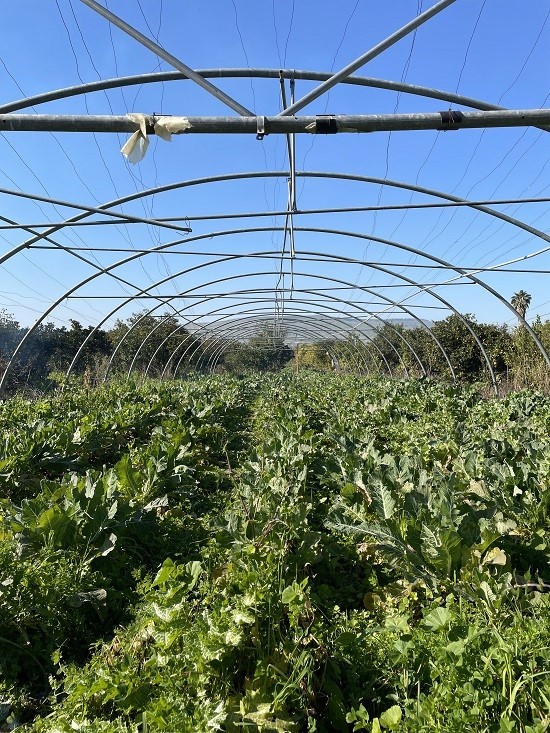 (Photo: Juliana Kaldany)
(Photo: Juliana Kaldany)
According to him,
the most vital part to ensure a successful citrus harvest is irrigation, which
needs to be done once a week. Yet, water is a common problem faced by northern
Jordan Valley farmers, in addition to money shortages and export facilities.
Questions
regarding the types of fruit, how they are harvested, challenges faced on the
farm, and the nature of the job could be heard continuously while the group was
meandering through the orange grove, and Abu Tamer and two other farmers
eagerly answered them. Fakhouri’s initial promise of “growing our personal
stories” was getting closer to being fulfilled as conversations among group
members emerged and follow-up questions turned to a wide scale, enriching
discussion about farming methods and ideologies.
The farmers,
generous in their giving, showed us the correct way to choose and pick citrus
fruit, which, by the way, is by cutting or twisting from the stem.
Enthusiastically, group members picked and sliced different fruits and some
mustard greens, and an exchange of dialogue and flavors occurred.
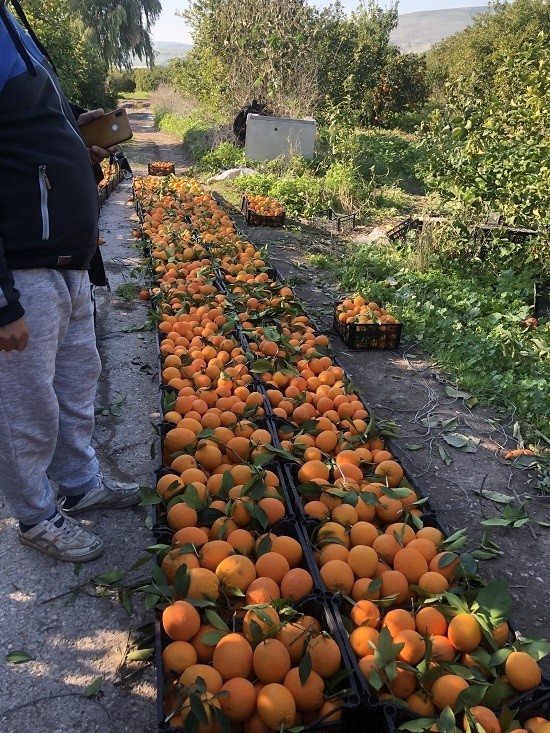 (Photo: Juliana Kaldany)
(Photo: Juliana Kaldany)
Fakhouri told
Jordan
News that she and Bataineh “lost hope in their connections with academic
institutions and in the knowledge generated from academia while we have an
abundance of sources and knowledge that we are not seeing or processing. Nor
were they taking us to better places. Pollution is increasing, tree cutting is
increasing, even human connections lost their value”.
Their envisioned
solution is embodied in Taghmees, as even the most mundane conversations
between the group and the farmers revealed the importance of our relationship
with the land and the importance of conveying stories to each other to achieve
a deeper understanding of each other’s experience.
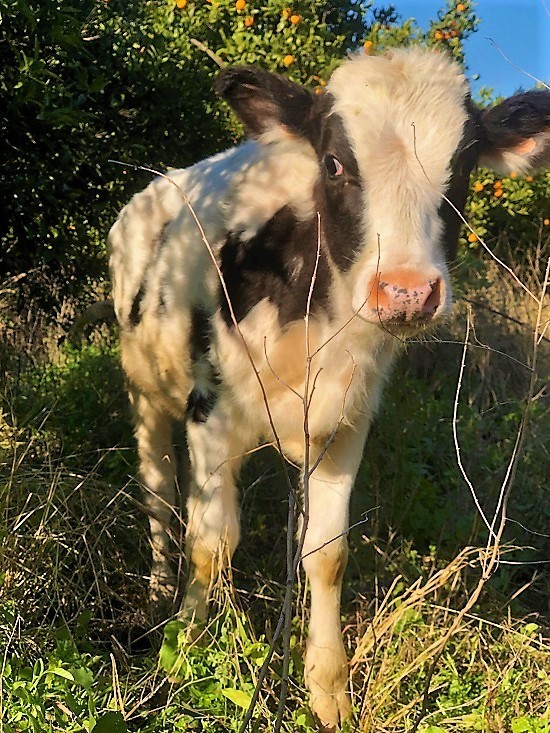 (Photo: Juliana Kaldany)
(Photo: Juliana Kaldany)
The visit to Abu
Tamer’s farm concluded with a cup of sweet tea, and the group, by now more
familiar with each other, went back to the buses and conversations. Later,
Fakhouri said that these conversations are the goal of Taghmees, as they seek
to establish relatability on various levels by “borrowing each other’s stories
and dipping ourselves into the moment and coming out with a new perspective or
story to share”.
Our next stop was
Abu Hamad’s farm near Tal Al-Arbaeen. Less focused — although still mentioned —
on the process of farming, the types of fruit that grow on the farm, and the
struggles they face, the farmer guided us through a large landscape of green,
checkered with different trees, trails, cows, dogs, an apiary, and a beautiful
view of the Jordan River, and Jenin and Bisan in the background.
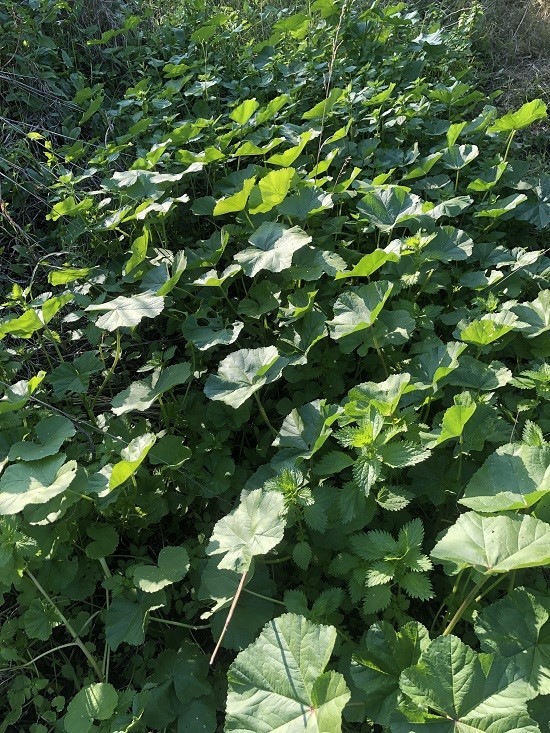 Khubezeh leaves. Khubezeh is a local wild plant simlar to spinach. (Photo: Jude Taha/Jordan News)
Khubezeh leaves. Khubezeh is a local wild plant simlar to spinach. (Photo: Jude Taha/Jordan News)
At Abu Hamad’s
farm, we were left to explore and meet Abu Hamad’s family. We picked khubezeh
(a local wild plant similar to spinach) and oranges, met two cows, and admired
Jenin from a distance. Abu Hamad’s family generously prepared lunch for us, an
assortment of local savory dishes that we could “dip into” with homemade bread.
Dancing, singing,
and introductions happened shortly after, and Abu Hamad spoke lovingly about
his wife as his life partner and the role everyone in the family plays in
maintaining the farm. The experience at Abu Hamad’s farm focused more largely
on understanding the importance of family dynamics and the relationship between
us, the land and the crops.
Eman Haram, an
artist and a fellow tejwal member, believes that such trips in nature are
necessary as they “rebuild our relationship with nature, ecology, and crops, as
they are life and hold a life of their own”. Through her current research on
oranges, she said, she was able to find a “history within itself through their
migrations. They are sacred and are more than a resource … they are a gift from
the land.”
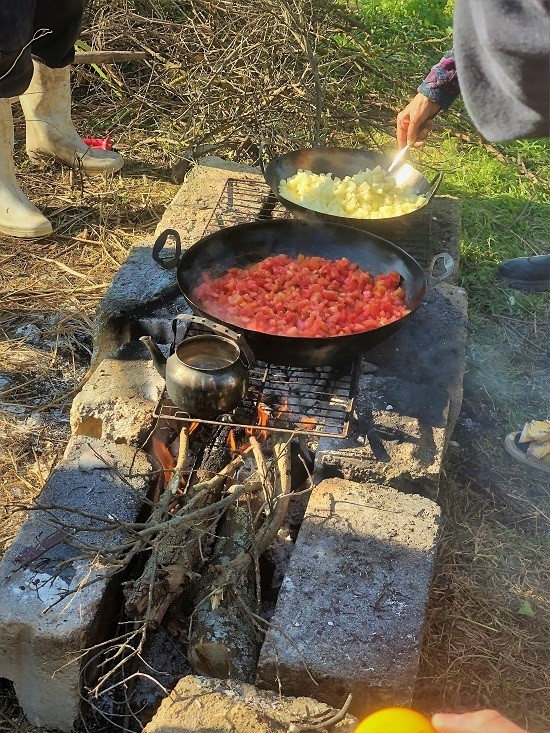 Lunch prepared by Abu Hamad’s family. (Photo: Jude Taha/Jordan News)
Lunch prepared by Abu Hamad’s family. (Photo: Jude Taha/Jordan News)
Fakhouri and Bataineh from
“ahel Taghmees” (the Taghmees family) hold various other events centered on
dialogue and learning, “with no age, gender, or experience limitations”.
Read more Around Jordan







